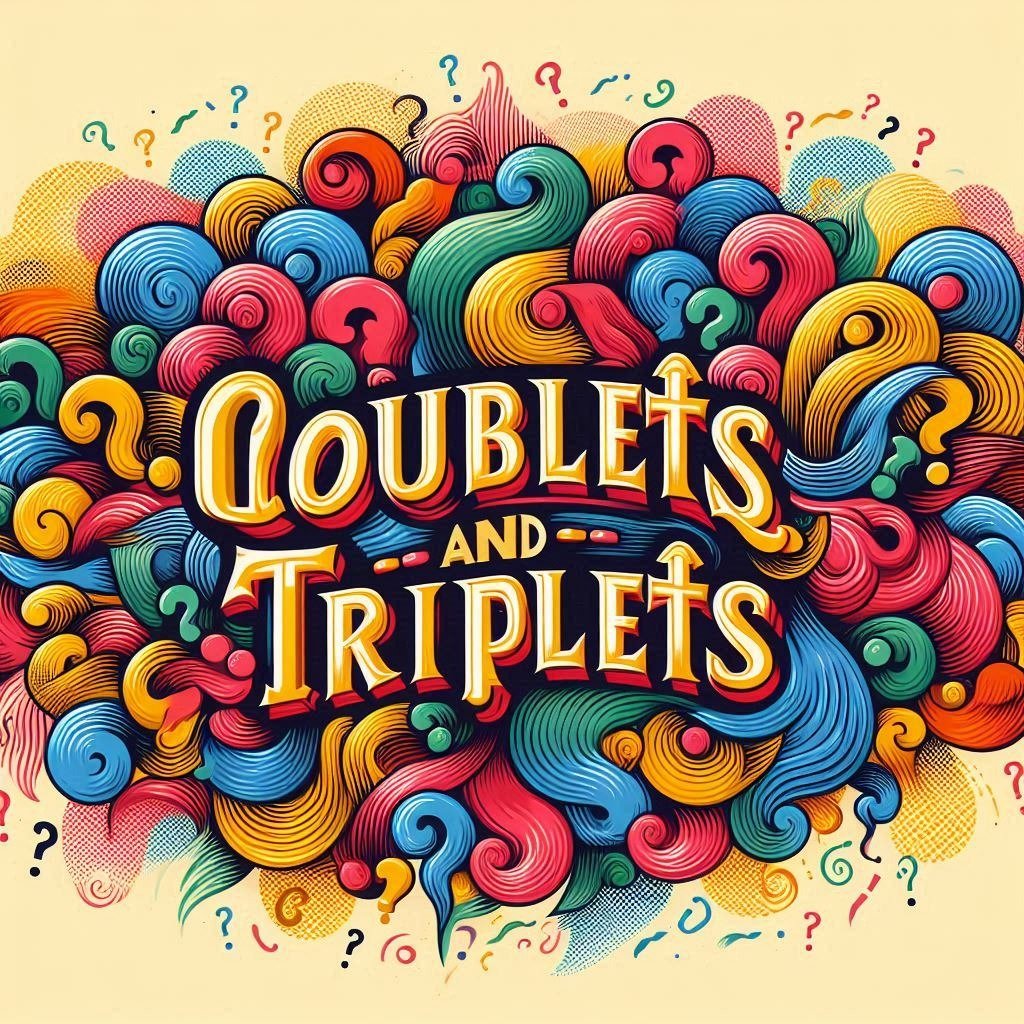Lots of Misses!
Legal terminology - words starting with MIS prefix
Lots of Misses
by Irene Radillo-Díaz
CA and Federally Certified Court Interpreter
What do all of these terms have in common when found in a legal context?
Trial Appropriation
Direction Construe
Lead (verb) Adventure
Characterize Represent
State Quote
Place Interpretation
Calculation Understanding
Conduct (noun) Handling
Heard Identification
Place (verb) Behave
And so many more!
All of these are terms in either their noun or verb form, that can come up in court but importantly for us interpreters, with the prefix “mis-“: mistrial, misdirection, misquote, etc.
You have to be clear on how to interpret the above terms before you add the prefix. And when you do add it, are they easily interpreted into your B language to express wrongly, badly, incorrectly or mistakenly? Is there a rule you can follow to make it easy? Can you come up with additional words that fit this pattern and are heard in court? Share them with us!
(And kudos to our colleague Anabel C. for pointing out this interesting pattern)
Let us know how if you’ve faced others, and how you would tackle these. Share your experiences, and don’t forget to check out our Free Resources and other materials at:
TheConfidentInterpreter.com
Feel free to re-post but make sure you give us credit!
Copyright: 2025. The Confident Interpreter. All rights reserved.
Doublets and Triplets, but Luckily No Math Involved!
Legal Terminology - Doublets and Triplets
Doublets and Triplets, but Luckily No Math Involved!
by Irene Radillo-Díaz
CA and Federally Certified Court Interpreter
We’ve all come across them in court, though they are so ingrained as part of court-speak that we often don’t even notice them.
Doublets or binomials are standardized phrases where the component words frequently (though not always) are synonyms that are joined by the conjunction “and.” Interestingly, they always appear in a specific non-alterable word order:
· Cease and desist (never desist and cease),
· free and clear
· ways and means
· each and every
· aid and abet
· law and order
· privileged and protected
· armed and dangerous
· assault and battery
· indemnify and hold harmless
· due and payable
· lewd and lascivious
· heirs and successors,
· any and all
· peace and quiet
· null and correct
· will and testament
· legal and valid
· signed and sealed
· fair and equitable
· terms and conditions. And so many more, especially prevalent in legal texts.
And then there are the triplets or trinomials:
· knowingly, willingly, and intelligently
· null, void, and of no effect
· ordered, adjudged, and decreed
And finally, there are quadruplets… quadrials… quadrotials? Um… OK, we’re making that up, fortunately! Or are we…?
Why, oh, why must we face this issue where the terms seem so similar as to render at least one of them apparently unnecessary? And what do you do when they pop up during a hearing or sight translation? Must you come up with an equivalent for each word that has a very similar meaning? Does your B language have ready-made equivalents? And why do we even have these repetitive words?
To answer this, it helps to know a very brief history of why they exist. Per various sources, they often have roots in different medieval languages – Germanic, Old English, Norman French, or Latin. Some terms appear repetitive because they were absorbed from Old English to Middle English and “medieval writers and lawyers felt they had to use words from both languages… to ensure documents would be understood and respected by all.” [Source: https://www.languageservicesdirect.co.uk/legal-doublets-what-are-they-blog-2/ ]. The doubling of terms became fashionable and to make it even more fun, they started combining these terms with French terms.
To resolve them when they come up as part of our interpreting, we should become as familiar as we can with equivalent terms of art in our B language, and accept that sometimes we will not be providing two terms for a doublet or three for a triplet. What is very true is that they provide an opportunity to expand our vocabulary, as we research them and gain further equivalent terms, because that’s what we do as word nerds, as we always want to be better and know more! So, we might even say: Thanks, doublets and triplets!
Let us know how if you’ve faced others, how you would tackle these, share your experiences, and don’t forget to check out our Free Resources and other materials at
TheConfidentInterpreter.com
Feel free to repost but make sure you give us credit.
Copyright: 2025. The Confident Interpreter. All rights reserved.
HEARD IT IN THE COURTROOM # 2
Tricky terminology interpreters encounter in the courtroom
A short practice for the oral exam or an amusing exercise for the rest of us.
Tricky language heard in court
A short review for those practicing for the oral exam and an amusing exercise for the rest of us.
by Yvette Citizen, Federally Certified Court Interpreter
The Confident Interpreter blog is back! The Confident team is pounding the keyboard once again. During our brief hiatus, we spent many a day in court and have decided to resume with another Heard it in the Courtroom segment, where we share interesting – sometimes bizarre – utterances the TCI team or our followers have heard in the courtroom. How would you have interpreted the following?
If you’re preparing for the oral interpreter exam, this will be a good refresher and some light practice. Pay specific attention to the underlined terms.
**********************************************************
Three things are certain: death, taxes, and the defendant’s guilt.
**********************************************************
Theft, trespassing in a residence under construction, discharging a firearm within city limits, misconduct with weapons, promoting prison contraband, and now lewd and lascivious conduct.
**********************************************************
The fentanyl was hidden in the quarter panels and in the bumper. The MDMA was under the air filter in the air filter box in the engine area.
Car parts… always car parts…
**********************************************************
The defense will have you believe the defendant is a loving father and a caring grandfather; nothing but unicorns, puppy dogs, butterflies, and rainbows. He had over 5 kilos of cocaine and meth in the closet and a loaded firearm under his bed. A Glock 19, 9-millimeter Luger.
And if it’s not car parts, it’s guns.
**********************************************************
You can’t tell me you were going to use the silencers to hunt rabbits.
**********************************************************
Defendant: I told them not to bring guns, Judge. I didn’t know Jimmy had a gun with him.
Prosecutor: The fact he told the others not to bring guns indicated he knew guns could be present and that he had a managerial role.
**********************************************************
And finally…
Judge: Sir, are you chewing gum in my courtroom?
Judge a few seconds later: Good Lord, Baby Jesus, did you just swallow that? You could have just spit it out!
Sometimes being in court is amusing. How did you handle the religious language? Were you able to conserve the religious tones without sounding disrespectful or affected in your target language? Some judges are full of folksy expression.
**********************
Let us know how you would tackle these, share your experiences, and don’t forget to check out our Free Resources and other materials at TheConfidentInterpreter.com
Feel free to repost but make sure you give us credit.
TheConfidentInterpreter.com
Copyright: 2025. The Confident Interpreter. All rights reserved.






